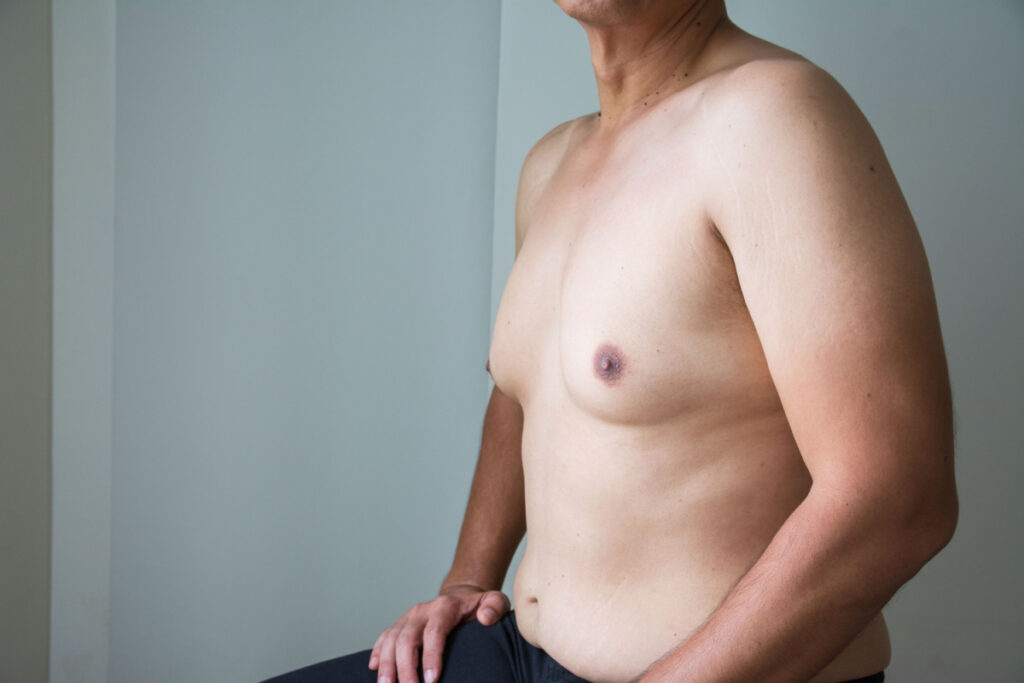
Gynecomastia is a medical condition affecting men that is characterized by the overdevelopment of breast tissue. The breast can increase in size and may even appear uneven. The condition is often associated with many other medical conditions, including obesity. Because of this, many patients may wonder if they actually have gynecomastia or if it is simply chest fat. Below, renowned surgeon Dr. Breitbart details how to spot the difference between the two.
Gynecomastia Symptoms
Being aware of the symptoms of gynecomastia is the first step in helping you distinguish the condition from cases of excess fat on the chest. Painful or swollen breasts, nipple discomfort or sensitivity, and tender breasts may indicate you have gynecomastia.
Excess Body Fat May Play a Role
The overall composition of your body can help you determine if you have gynecomastia. It is natural for patients who are overweight to have fat distributed evenly throughout the body, including the chest. Because gynecomastia is influenced by hormonal shifts, even weight loss may not improve the condition. If you have shed unwanted pounds but still have enlarged breasts, you could have gynecomastia. Also, pay attention to breasts that grow unevenly, as this may also be an indicator of the condition.
Medical Conditions That Cause Gynecomastia
Sometimes, gynecomastia patients have underlying medical issues that contribute to the size of the chest. Rarely, these may include:
- Lung cancer
- Testicular cancer
- Thyroid disorder
- Injury
- Liver disease
Certain medical conditions may also necessitate the regular use of special medications, some of which can also cause gynecomastia. If you notice an increase in breast size after taking medicine for psychiatric conditions (anxiety and psychotic disorders) or blood vessel disease, it could be more than chest fat.
Some Drugs Can Trigger Gynecomastia
If you notice signs of gynecomastia, ask yourself if you have recently used drugs, such as androgens. Even some supplements can contribute to increased chest size.
Do You Have a Hormonal Imbalance?
Additionally, gynecomastia is often the result of changes in the hormones — specifically, estrogen and testosterone. Aging and increased body fat can boost estrogen levels in men, making hormonal imbalances likely. For some, hormonal changes are easy to spot; others may need to have their hormones checked to identify any issues.
Gynecomastia Treatment in Long Island and NYC
One way to know for sure if you have gynecomastia is to visit Dr. Breitbart, who can perform a thorough evaluation during a consultation. He can also recommend the most effective treatment options to restore a normal chest appearance and help you feel more confident with your chest. Request an appointment online or call our office today to get started.



